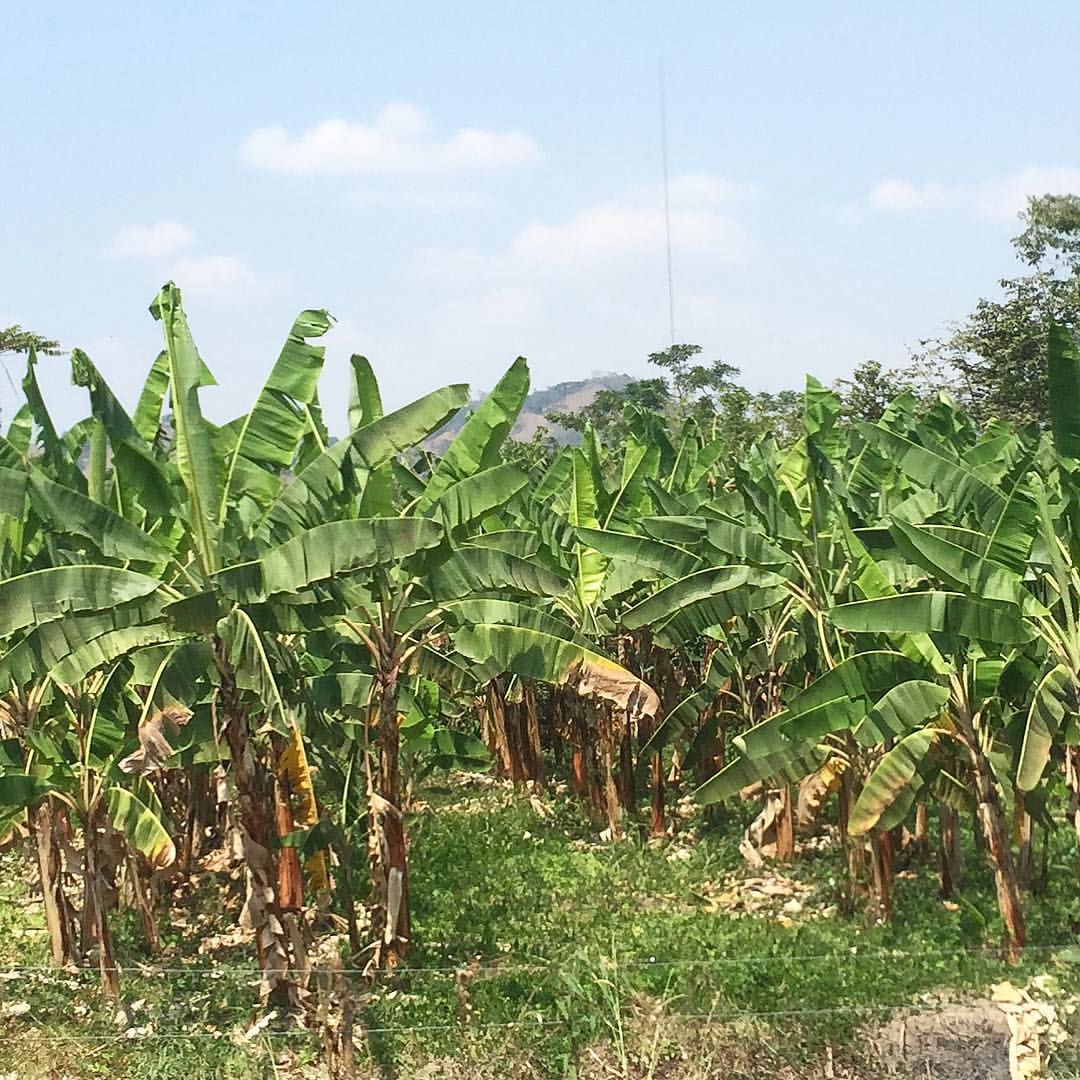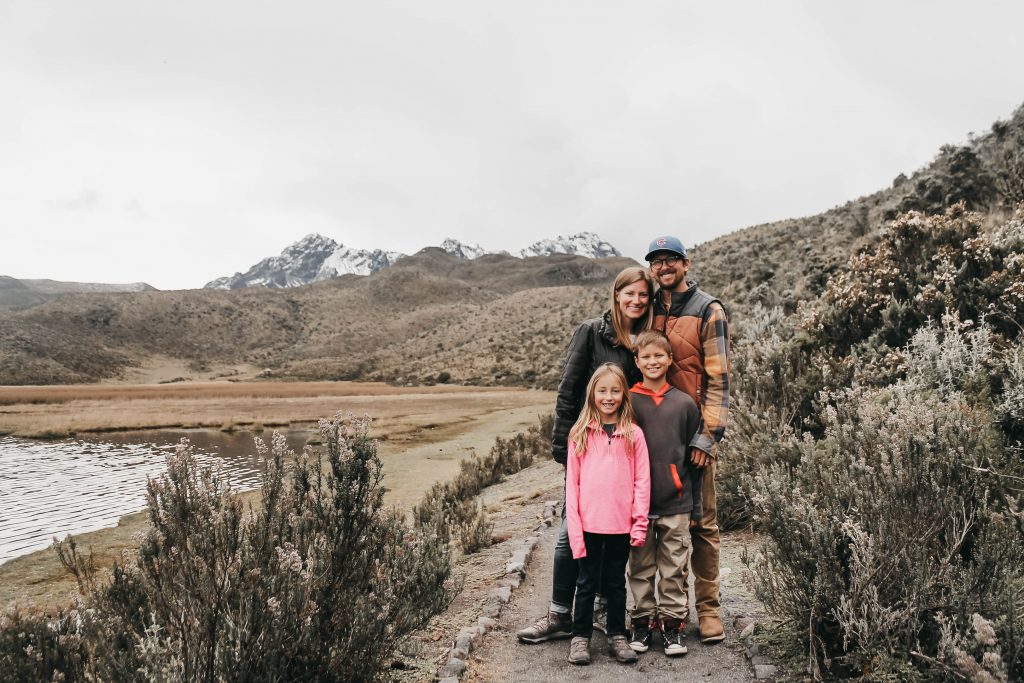As increased denunciations and statements come forth, we join with the leadership of the Evangelical Covenant Church in condemning the violence at the Capitol, lamenting the divisions within our nation, and acknowledging our fractured society. We mourn the loss of life and harm to many. https://covchurch.org/news/a-call-for-peace-and-unity/
We cannot move toward peace and unity without a reckoning with what continues to tear us apart. Epiphany is a time when we recognize that God-incarnate revealed himself as Christ in Jesus of Nazareth, even to Gentiles—the nations. It is a time we recognize Christ as the Prince of Peace in opposition to the power-hungry and violent king Herod. Furthermore, Epiphany shows us that every nation has the opportunity to share their gifts to the glory of God and neighbors’ good. Epiphany, “shown forth,” reminds us of these truths: that Christ has been revealed to all of humanity and all of humanity has gifts to offer.
For us personally, global personnel who have studied and lived on-and-off in Latin America, two repeated phrases have caught our attention in response to what has occurred in the US capital on Epiphany. It is always curious when in an indirect way a small country like Ecuador makes the news. The “Banana Republics” are not thought of often in the United States or only disparagingly so, such as we have heard the last few days. We eat our bananas here in the US with seldom a thought as to why whole countries get a label for the fruit. We know that the use of “Banana Republics” is a euphemism for corruption, a lack of political process, and cycles of violence and disruption. There ends our interest in this string of agrarian “backwaters.”

The second phrase that drew our attention was especially amplified by President-elect Biden declaring, “This is not who we are.” As many have pointed out, the attack on the Capitol is by far not the first time a white mob has overwhelmed local police forces in the pursuit of overrunning democratic processes, resulting in the loss of life. In 1895, Ida B. Wells collated and published the Red Record, documenting the hundreds of white mobs who by overwhelming, or at other times cooperating with, local police brought about death and defilement of fellow Americans in lynching, burnings, and destruction. Ms. Wells wisely used white individuals’ witness accounts as recorded in several newspapers in her own publication so that the testimony of violence would not be dismissed as the conspiracy of an African American woman, but she still had to flee Memphis for Chicago to remain safe. Likewise, cities including Chicago, Detroit, Tulsa, and Kansas City, all have had periods in their history, especially in the early 20th-century, when white mobs proclaiming to be protecting order, decency, and democracy, destroyed buildings, killed or caused the death of their neighbors, targeting black or Asian residents. Many Americans have not been taught our own history. We too quickly want to view a white mob overwhelming a government building as unique but seeing a scaffold with a noose erected outside the Capitol building is not a first; this is who we have been throughout our history. Maybe it would be better said that “This is not who we would like to be.”
From our perspectives having been missionaries outside the United States, the two statements about banana republics and this being “not who we are” intertwine in countries like Ecuador. This is partly who the United States has been throughout the Latin American region’s history as much as it has been domestically. We use these phrases like “Banana Republics,” “Third World Country,” or “this is not who we are,” so that we can distance ourselves from the direct perpetrators, placate our anxieties that in some way we are complicit, or again give in to the false claim that we are greater than every other group of people out there. It prevents us from looking deeper into our history and into our own present culture. While white mobs throughout our history have overrun police in order to do what they please on the basis of lies in order to support corruption and dictatorial leadership with an air of exceptionalism, these events have not been contained to within these borders. As Constanza Eliana Chinea has pointed out, by invoking this image of the Banana Republic we give in to the idea once again that we in the US are inherently superior because “that doesn’t happen here” and thus project that brown bodies don’t know how to govern themselves. We give in to a lie and we avoid taking an honest look at reality and our shortcomings.
Calling into question fair democratic elections with no evidence of fraud, trying to disrupt constitutional processes, calling any opposition “socialists” or “anarchists,” condemning journalists, experts, educators, and intellectuals, and simultaneously fearmongering over insecurity, “unchristian” propagation and lawlessness while encouraging violence from paramilitary groups are tactics long taught and used at the US funded School of the Americas. So, while it may be true that the events on Epiphany 2021 have not been seen on such a sacrosanct place as our own Capitol building in Washington, many other capitol buildings throughout Latin America have seen this. The deception and disregard of the truth for more than a century has been backed by the United States throughout the Americas. We want to be clear, US intervention in the region has not been the only cause nor the sole actor, but if you do even a little bit of research on the region’s history it is unavoidable to see the US had a hand in denying, denouncing, and disrupting democratic processes. From inciting war so we could have exclusive rights to the Panama Canal to ousting elected presidents in favor of military dictators, this is who we have been. It is not wholly who we have been, good has been done, but we cannot deny the great disruption underwritten or instigated by the US.
The continued disregard of evidence, truth, and process feeds on creating an environment of an artificial enemy, one another. We must fear ordinary people in order to act in such a way. We have to invent something to defend against to avoid looking at ourselves. Pick up a book on any of the martyr’s from Latin America’s recent history, such as Archbishop Oscar Romero or US citizens such as Sister Maura Clarke and note how labels of socialism, treachery, and fraud were used so that the words and faith of pastors and nuns could be easily dismissed and their lives readily disposed. Within our own denomination we have had members detained, disappeared, or exiled simply for being pastors or educators, suspicious occupations when living so close alongside the impoverished.
There is no monolithic view on the history of the United States nor is there a single perspective on what is occurring here now. We must say there is an ambiguity toward the United States in Latin America. That is part of the point, we are all capable of great good and great destruction. The brilliant church historian and theologian Justo Gonzalez (1990) tries to articulate this felt ambiguity. Many people from Latin America, he says, are grateful as the US has been viewed as a model for education and democratic process as well as providing refuge for exiles fleeing violence, yet a bitterness exists that the welcome and neighborliness is only ever extended to a certain point before the doors are shut. In Latin America, countries are grateful for investment or that we in the US will buy the flowers, eat the tuna, and peel the banana, but resentment grows as low prices are deemed more important than fair wages. In our own time we have watched as US and European corporations have ruthlessly shut down flower pickers attempting to organize with local faith leaders to obtain fair pay and benefits. Secondly, anger stems from the growing realization that it was the United States vested interests and involvement in many countries that led to the need to flee in the first place when the cycles of violence were initiated by US action. US Navy and Marine occupation or the disruption of democratic processes and peaceful reform movements always preceded any leftist militancy. That is something we in the US do not wish to mention, because it is not who we wish we were.
This is a part of mission history as well. As missionaries we have spent hours in formal and casual conversation, lament, reflection, and reparation with our partners on the ways these postures and this history has hindered our churches in forming a better partnership in proclaiming Christ’s Gospel in word and deed. Throughout all this history a cultivation of fear and suspicion of the broader culture was paramount. People must suspect one another politically and spiritually for such disruption to occur and for leaders to take advantage for their own aggrandizement. For such actions we must believe an enemy is everywhere, ready to wage war against our very souls. Who is a true patriot and who is a true Christian? Much of this stems from Christian views that we are right and righteous over and above others, that we alone have the vigilance and authority to defend God and that enemies of Christianity and good order lurk at every corner. We fantasize about our right-ness rather than following in the footsteps of Christ who drew wide the doors of his reign and kingdom. We so want to be special, when in fact we are just as human, just as deceitful and deceived as any other people group, just as capable of goodness and care.
In many white conservative Christian circles the rhetoric of war has long been a part of our shared language and culture. “We are fighting a spiritual battle daily,” we hear. But instead of being at war against fear, xenophobia, systemic racism in our nation’s history and present reality, white supremacy, economic injustice and poverty, hunger or illiteracy, nor even warring against the darkness of our own personal sins and shortcomings, we tend to claim war against “them” and “they.” The rhetoric of war has been externalized to our neighbors and the institutions that are supposed to assist our attempts at living together. In recent years this has reached new heights of anxiety and urgency. For example, claims that there is a war against Christmas yearly makes the rounds. Our family has had no trouble celebrating Christmas in the United States. We have always found plenty of trees to buy and there is no escape from exclusively Christmas-themed music in stores for months. Despite this evidence to the contrary, many of us have been told of an ethereal, ominous enemy embodied in our neighbors and our society. In such circles we have been inundated with clarion calls to arms from Sunday school teachers, pamphlets, radio programs, and social media to defend against attack, or to wage war against those who would take away our faith. The enemy is all around, infiltrated into the echelons of institutions, we are told. Distrust our greatest attribute rather than community.
Scripture tells us to keep watch, asks us to be in but not of, that is true, but we are called to recognize we are all in need of God. We are told that as humans we have the capacity to do great things while also able to cause the greatest of harms. By placing on others a constant suspicion and our consistent denial of history or current reality which may make us uncomfortable is a far cry from Christ who ate with sinners, conversed with Pharisees, and responded to soldiers. While Epiphany repeatedly reminds us that the Christ is the Prince of Peace, his messengers’ feet blessed because of the proclamation of peace and welcome to all peoples bound to one another, we have substituted waging peace for waging war and usurped proclaiming what all people can see to be revealed so that we conservative white Christians can claim special access to truth, avoiding the challenge and joy of the Epiphany to the nations. We seem to resemble more a gnostic religion, where a special or secret knowledge is only held by a few, opposed to a belief in the “showing forth” of Christ with and in all nations.
Some might say that those who protest in Black Lives Matter also make claims of special knowledge. That is another falsehood too easily entertained. The great difference with what occurred on January 6 and BLM is evidence, a “shown forth,” the epiphany of history. We can see the records and testimony, photos, statistics, and video of death and destruction wrought by racism and xenophobia unlike the continued fantasies, false claims and prophecies, the simple deceit which incited violence at the Capitol and disrupted the work of Congress’ constitutional duties. We don’t all need to become Democrats or Libertarians or give up on our democratic party system but renew our energy to uphold truth and admonish against sedition. We expect standards of honesty, decency, forbearance, and accountability— something that has been gravely missing to our own detriment. The incitement on January 6 is what has been wrought. It should not be a surprise. Any leader must be called to account. King David was called to account by Nathan, even Jesus Christ was called to account by the Syrophoenician woman. We join the National Council of Churches in calling all leaders to account and consequence who have permitted such seditious actions https://nationalcouncilofchurches.us/open-letter-to-vice-president-pence-members-of-congress-and-the-cabinet-calling-for-the-removal-of-president-trump-from-office/.
The natural culmination of our disregard for one another and for democratic processes does not rest on just a few and thus so easily dismissed. What we witnessed are the consequences of how large parts of our culture operate in appeasing fantasy and lies. As the chapter of Isaiah allotted for January 7 states, “your lips have spoken lies, your tongue mutters wickedness. No one brings suit justly, no one goes to law honestly, they rely on empty pleas, they speak lies, conceiving mischief and begetting iniquity” (Isaiah 59:3-4). It is a time for truth. No evidence has ever been presented by the President or his lawyers. Nor at any time have electoral commissions run by either Republicans or Democrats reported misgivings. International and domestic observers have made no claims of wrongdoings. No cases were brought forth by hotlines or the President’s federal commission on electoral fraud. Yet more than 60 unjust suits and attempts to claim fraud were brought to court personally by the President’s campaign and subsequently rejected for a complete lack of any evidence and still many of President Trump’s supporters continue to press that there was special knowledge of fraud which in turn undermine our electoral process and constitutional bylaws. Then the President’s own incitement and directives to raid the Capitol and disrupt Congress begot iniquity and death. We are all bound up within this nation and culture that to easily gives in to fantasy rather than cooperation, conciliation, repentance, vulnerability, and the simple capacity to admit defeat or wrongdoing. Unlike the Magi, we have such difficulty in turning and going another way. There were plenty of opportunities for conservative leaders to intervene and uphold truth, make clear that speciousness could no longer be condoned, but most failed to take that route until too late. Those who did have had their lives threatened, their homes desecrated, their families put at risk. This is not who we would like to be.
Looking uncomfortably and honestly on our history, on our complicity is necessary for true unity, for lasting reconciliation. Many have pointed to Archbishop Tutu’s work with the Truth and Reconciliation Commission as a way for a nation to truly grapple with its ghosts that haunt, its disunity, and its denial. We cannot move forward toward national reconciliation, peace, and unity without honestly looking at painful truths. “It is crucial to underscore that it [TRC] was meant to promote not to achieve those worthwhile objectives,” Tutu (1997) reminds us. The TRC was just one entity to assist in the national project. Every South African needed to contribute to the repentance and forgiveness necessary for reconciliation and justice. There can be no true and lasting repentance without facing reality by every person who lives in the United States.
All of our liberation is wrapped up with one another’s, whatever our backgrounds or political beliefs. It is time to stop waging war and it is now time to begin or continue in our vocation to pursue true justice and divine peace. The Magi travelled great distances in order to find the truth, they followed the signs through great discomfort. And when confronted with deceit and corruption, they did not give in but returned home by another way.
The Rev. Nick Comiskey poignantly states that “The Body of Jesus Christ is not an incubator of fantasy. It is a place where we are confronted by truth that challenges, convicts, converts and transforms us. We don’t have all the answers: we often get things wrong. But we are friends of truth. We herald its possibility even when it’s uncomfortable.” As we seek to follow the way of Christ these days of Epiphany some of the gifts we can offer at this time are an honest investigation of reality, a review of the spiritual distortions that have given room for sedition, and a willingness to trust one another and name complicity so that we can do the necessary work to heal through the power of God, hope of the nations.
Some Resources
Mañana Justo Gonzalez
No Future without Forgiveness Desmond Tutu
A Radical Faith: The Assassination of Sister Maura Eileen Markey
Terror in the City of Champions Tom Stanton



Thoughtful. Challenging. Clarifying. Thank you.
Report This Comment
Thanks for reading, Polly! Hope you are well!
Report This Comment